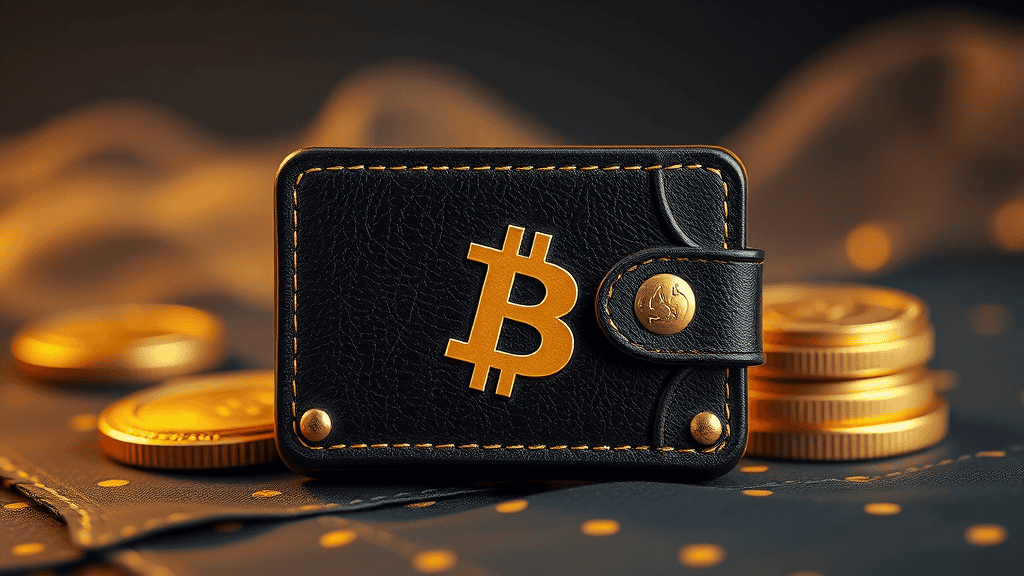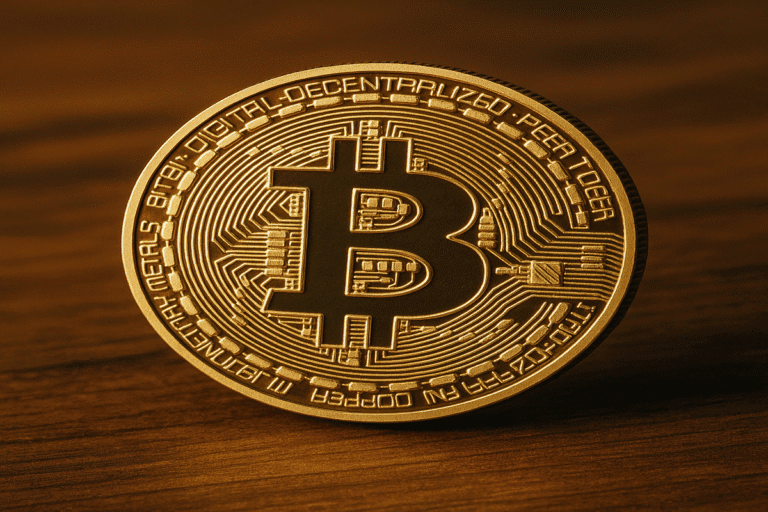Prepare for the future of Crypto and Exchanges

The world is changing quickly. President Trump is back in office and aggressively taking action in many directions. While the crypto industry is only one of them, with appointees heavily invested in crypto, such as Secretary of Commerce Howard Lutnick, AI and Crypto Czar David Sacks, and Secretary of Treasury Scott Bessent, plus talk of a strategic crypto reserve originally championed by Wyoming Senator Cynthia Lummis, crypto is quickly gaining ground.
You might be asking, what does this have to do with real estate? Well…it turns out, a lot.
I have been interested in crypto for a few years now focused primarily on Bitcoin. More recently, I ventured down the rabbit hole of real world assets and saw the implications of this on a scale that made my head hurt. To make a long story short, the future of real estate could look very different as in addition to the traditional home sale process, you now also have the option of selling your property on a blockchain with a company like Propy. One thing you will absolutely need in order to do this is a digital wallet.
Learning how to use this technology now can position you to serve yourself and your loved ones well in the future.

As cryptocurrencies and digital assets gain popularity, securing them is more important than ever. Unlike traditional wallets that hold physical cash, crypto wallets store digital assets, property ownership rights, and transaction records. The security of these wallets is crucial to protecting your investments, whether they are Utility Tokens (cryptocurrency) or Security Tokens (tokens associated with holding an asset like real estate). In this guide, we’ll cover the basics of crypto wallets, their types, how exchanges work, and best practices for security.
What Is a Crypto Wallet?
A crypto wallet is a software program that stores your Crypto and Assets, including money, ownership rights, and digital asset rights. It also stores your private and public keys, enabling you to send, receive, and store cryptocurrencies. While crypto wallets do not physically store currency, they store transaction records and are integral to blockchain infrastructure.
- Public Key: This is your wallet’s address. Just like your home address is a public record used to receive mail from various places, your public key identifies your account on the blockchain and is used to accept digital currencies and assets.
- Private Key: This cryptographic key is used to sign transactions and prove wallet ownership. It allows you to control the assets associated with your public address. Never share your private key.
Types of Crypto Wallets
Crypto wallets are divided into two main categories: Hot Wallets (software wallets online and connected to the internet) and Hardware or Cold Wallets (offline storage). These devices plug into your computer like a USB and typically have secure chips similar to smart cards, ensuring that private keys never leave the device. Each serves a different purpose and has its own security implications.
1. Hot Wallets (Online & Connected)
Hot wallets run on the cloud, providing instant access to your cryptocurrency and making it convenient and accessible from any device. However, they are also more vulnerable to hacking.
Examples of Hot Wallets:
- Mobile Wallets (e.g., Trust Wallet, MetaMask) are mobile applications. They are practical but risky if your phone is lost or stolen.
- Desktop Wallets—Installed on your PC or Laptop, these offer a high level of security, provided your computer is not hacked. Examples include Exodus, Guarda, and Electrum.
- Online Wallets (e.g., Coinbase, Binance) – Convenient, but store private keys on cloud servers controlled by a third party.
🔥 Risk: Since hot wallets are always connected to the internet, they are more susceptible to hacks. It is best to keep only a small amount of funds in a hot wallet for immediate use while keeping most of your funds offline in a cold wallet like Trezor or Ledger.
2. Cold Wallets (Offline & Secure)
Cold wallets are compatible with different web interfaces and store digital assets offline, making them highly secure and recommended for long-term holdings. Trezor and Ledger are known for their security and provide excellent customer support. They will walk you through setting up your wallet and are responsive to questions ongoing.
Examples of Cold Wallets:
- Hardware Wallets (e.g., Ledger Nano S, Trezor) – Physical devices that store private keys securely.
- Paper Wallets – A physical printout of your private and public keys.
- Air-gapped Devices – Computers or USB drives never connected to the internet.
The security of the wallet is one of the most important aspects of holding your assets. Real Estate NFT, Security tokens, avatar, PFP, and access to art.
Cryptocurrency Exchanges: What You Need to Know
A cryptocurrency exchange operates much like a stock exchange. It is a marketplace where users buy, sell, and trade digital assets. Some exchanges deal with fiat currencies plus crypto, while others trade only crypto assets.
Types of Crypto Exchanges
- Fiat-to-Crypto Exchanges – Allow users to trade national currencies (USD, EUR) for cryptocurrencies (e.g., Coinbase).
- Crypto-to-Crypto Exchanges – Only support cryptocurrency trading (e.g., Binance, Uniswap).
- Centralized Exchanges (CEXs) – Managed by a company that controls transactions, security, and user data. (Coinbase)
- Decentralized Exchanges (DEXs) – Peer-to-peer networks without a central authority, offering greater privacy and control. Decentralized exchanges are stored on a network of distributed nodes and allow you to trade cryptocurrency directly (peer-to-peer/P2P) with others. The government or users cannot alter it. The lack of centralization means no single point controls and manages the network, so server downtime is no longer an issue. Since DEXs are executed using smart contracts, you can buy or sell straight from your wallet – no third party is required. (examples: Uniswap and Pancake Swap)
CEX vs. DEX: Which One Should You Use?
| Feature | Centralized Exchange (CEX) | Decentralized Exchange (DEX) |
| Security | Controlled by a company, susceptible to hacks | No KYC (know your customer) is required. You operate under a pseudonym. |
| Liquidity | High liquidity, faster trades | Lower liquidity, slower trades |
| Ease of Use | Beginner-friendly | Requires self-custody of assets |
| Privacy | A central authority, a third party, has confirmed your identity and has your data. Vulnerable to hacking. | No KYC (know your customer) required. You operate under a pseudonym. |
Popular CEXs: Coinbase, Binance, Kraken
Popular DEXs: Uniswap, PancakeSwap
🔹 Tip: If privacy is a priority, consider using a DEX. If you want beginner-friendly trading, a CEX may be a better option. You can always shift to other exchanges later.
Security Best Practices for Crypto Wallets & Exchanges
Remember these security guidelines to protect your assets regardless of your wallet or exchange.
1. Protect Your Private Keys
- Store your private keys offline.
- Use hardware wallets for long-term holdings.
- Never share your private key with anyone.
2. Enable Two-Factor Authentication (2FA)
- Use an authenticator app (e.g., Google Authenticator) instead of SMS 2FA. (not text message code confirmation)
- Enable 2FA for all exchanges and wallets.
3. Use a Secure Internet Connection
- Avoid public Wi-Fi when accessing your wallet.
- Use a separate browser or device for crypto transactions.
4. Regularly Update and Back Up Your Wallet
- Keep software updated to protect against vulnerabilities.
- Back up your wallet’s seed phrase in a secure location. There are various ways to secure your seed phrase/passkey, usually consisting of a series of 12 or more words.
- Secure Seed Phrase Storage Methods include:
- Metal backup plates (fire and water-resistant)
- Multiple physical copies stored in different secure locations (e.g., home safe, safety deposit box)
- Split storage using Shamir’s Secret Sharing scheme for critical holdings
- Never store seed phrases digitally or in cloud storage
- Consider multi-sig wallets for additional security on large holdings
- Test recovery process before storing significant assets
5. Choose Reputable Exchanges
- Verify exchange security, fees, and reputation before signing up.
- Be cautious of exchanges with high withdrawal fees or unclear regulations.
6. Diversify and Store Funds Wisely
- Use both hot and cold wallets to balance security and liquidity.
- Spread your funds across multiple wallets and exchanges.
⚠️ Warning: Most crypto exchanges are NOT legally required to reimburse lost funds. Choose exchanges with strong security and compliance measures.
Most Popular Exchange: Coinbase
Coinbase plays a significant role in the crypto ecosystem as a qualified custodian for several spot Bitcoin ETFs, including those from major financial institutions like BlackRock, ARKK Invest, and Fidelity. Coinbase securely stores the Bitcoin backing these ETFs as a custodian, though their respective financial institutions manage them. This institutional role and its retail exchange services make Coinbase a major player in bridging traditional and crypto finance.
However, Coinbase’s dual role as a significant retail exchange and institutional custodian raises essential questions about its market concentration in the crypto ecosystem. Most crypto enthusiasts became so because they wanted to move away from centralized power and control, so understanding these dynamics can help inform your choice of exchanges and storage solutions.
Regarding security, Coinbase was hacked in 2021, and six thousand accounts were breached. The exchange quickly recovered from this attack, returning all lost funds to the affected customers. As a public company, Coinbase is incentivized to remain in good standing with the government, institutions, and people it serves. The signup process for Coinbase is thorough, as extensive measures are taken to verify your identity, but the ease of use and security make it a great place to begin your crypto journey.
Common Scams in Digital Real Estate & Crypto: What to Watch For

As real estate transactions increasingly move into the digital realm, awareness of common scams is crucial for protecting your assets.
Phishing Attacks
Scammers create fake versions of popular platforms like Coinbase or MetaMask, attempting to steal your login credentials or wallet keys. Always verify URLs carefully and bookmark legitimate sites.
Real Estate Application: As property titles and transactions move to blockchain platforms, watch for fake “tokenized property” platforms that mimic legitimate real estate tokenization services.
Social Engineering
Fraudsters may pose as customer support for exchanges or wallet services, pressuring you to share private keys or seed phrases. No legitimate service will ever ask for these.
Real Estate Application: Be wary of unsolicited offers to “tokenize” your property or promises of exclusive access to tokenized real estate investments through direct messages.
Clipboard Hijacking
Malware that changes crypto wallet addresses when you copy-paste them. Always verify the full address before confirming transactions.
Real Estate Application: As blockchain-based property transactions become more common, this could affect property token transfers or smart contract interactions.
Fake Apps
Counterfeit wallet apps on app stores that steal your credentials and crypto. Only download from official sources and verify developer information.
Real Estate Application: Watch for fake “property tokenization” or “real estate NFT” apps that claim to convert your property into digital assets.
“Rug Pulls” in Property Tokens
Projects that promise tokenized real estate investments but disappear with investor funds. Always verify project legitimacy and regulatory compliance.
Essential Glossary of Terms/Review
Blockchain Basics
- Blockchain: A digital ledger that records transactions across a network of computers (nodes). Think of it as a permanent, transparent record of property ownership that can’t be altered.
- Smart Contract: Self-executing contracts with terms written in code. Could automate property transfers, rental payments, or escrow services.
- Gas Fees are transaction costs on a blockchain network. They are similar to recording fees at the county clerk’s office, but for digital transactions.
Wallet & Security Terms
- Seed Phrase: A series of words (usually 12 to 24) that can recover your wallet. Think of it as the master key to your digital safety deposit box THAT YOU CAN NEVER LOSE.
- Private Key: A secret code that proves ownership of digital assets. Like the deed to your property, never share it with anyone.
- Public Key: Your wallet’s address for receiving assets. Similar to your property’s physical address, it is safe to share publicly.
- Custodial vs Non-custodial: Custodial means a third party (like Coinbase) holds your assets. Non-custodial means you control them directly.
Real Estate Specific
- Tokenization: Converting real estate ownership into digital tokens on a blockchain. Each token represents partial ownership of the property.
- Property NFT: A unique digital token representing ownership of a specific property or real estate asset.
- Security Token: A digital asset that represents ownership in real estate and is subject to federal securities regulations.
- DeFi (Decentralized Finance): Financial services on the blockchain. Could include property-backed loans, rental payment systems, or automated property management.
Best Practices for Real Estate Professionals
- Start small: Begin with a small amount in a trusted exchange like Coinbase to learn the basics.
- Document everything: Keep detailed records of all digital transactions, just as you would with traditional real estate deals.
- Verify platforms: Only use tokenization or property NFT platforms that comply with real estate and securities regulations.
- Secure storage: Use hardware wallets to store high-value property tokens or significant cryptocurrency holdings.
- Stay informed: Follow developments in blockchain real estate applications through reputable industry sources.
Remember: The integration of blockchain technology into real estate is still evolving. While preparing for future developments is wise, always conduct thorough due diligence and consider consulting with legal and technical experts before engaging in property tokenization or blockchain-based real estate transactions.
Final Thoughts: Choosing the Best Wallet & Exchange
The best wallet depends on your needs. If you trade frequently, a hot wallet may be convenient. A cold wallet (especially a hardware wallet) is the safest option for long-term storage.
When selecting an exchange, consider:
✔ Security – Does it have strong security measures?
✔ Liquidity – Does it offer fast and fair trades?
✔ Fees – Are withdrawal and trading fees reasonable?
✔ Verification – Does it require Know Your Customer (KYC)?
✔ Reputation – Is it regulated and trusted?
Your Next Steps
- ✅ Set up an account on a trusted exchange (e.g., Coinbase, Binance) for trading.
- ✅ Set up a software and hardware wallet for short and long-term storage.
- ✅ Enable 2FA and private key protection for all your accounts.
- ✅ Always do your own research (DYOR) before investing in any exchange or token.
By taking these steps, you can protect your digital assets and trade confidently in the evolving world of cryptocurrency and tokenization,
Do you have any favorite wallets or security tips? Do you have any questions? Email me at stacy.mtre@gmail.com. I would love to hear from you.






